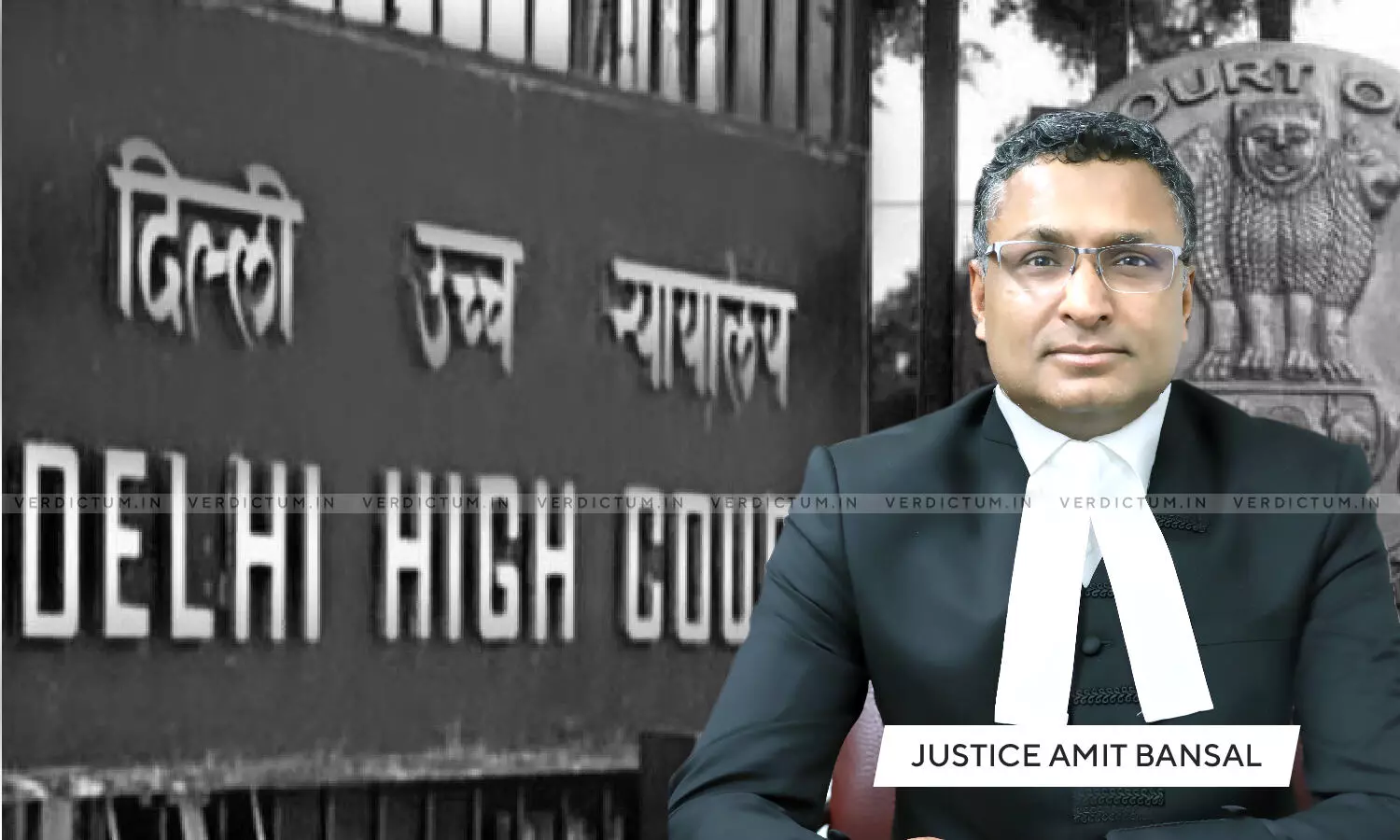
Justice Amit Bansal, Delhi High Court
Delhi High Court: Software Or Computer Programme To Qualify U/S 3(K) Of Patents Act Should Be More Than A Mere Sequence Of Instructions
 |
|The Delhi High Court was deciding an Appeal filed under Section 117A of the Patents Act, challenging the Order of the Assistant Controller of Patents and Designs, which refused an Indian Patent Application.
The Delhi High Court observed that for a software or computer programme to qualify under Section 3(k) of the Patents Act, 1970, it should be more than a mere sequence of instructions.
The Court observed thus in an Appeal filed under Section 117A of the Patents Act, challenging the Order of the Assistant Controller of Patents and Designs, which refused an Indian Patent Application.
A Single Bench of Justice Amit Bansal held, “It is apparent from the judgments discussed above that for a software or computer programme to qualify as an eligible subject matter under section 3(k) of the Act, it should be more than a mere sequence of instructions and should result in significant technical effect or advancement of the hardware.”
The Bench said that the invention claimed in the patent application is a mere sequence of instructions stored in hardware without solving any technical problem or offering any technical advancement to the hardware.
Advocate Vineet Rohilla represented the Appellant while Advocate Piyush Beriwal represented the Respondents.
Case Background
The Appellant, Kroll Information Assurance, LLC, is an entity based in the United States of America (USA). The subject Patent Application was filed as a national phase application under the Patent Cooperation Treaty (PCT), claiming priority from the US patent application with priority date as April 12, 2005. The Application was titled as “A System, Method and Apparatus to locate at least one type of person, via a Peer to Peer Network”. A request for examination of the patent application was filed by the Appellant in November 2007 and the First Examination Report (FER) was issued in February 2013.
The FER communicated that the subject matter does not constitute an invention under Section 2(1)(j) of the Patents Act. In reply to the objections raised in the FER, the Appellant submitted a detailed response along with proposed amendments to the Claims. Thereafter, a hearing was scheduled in May 2019 and it was communicated to the Appellant that the subject matter does not constitute an invention. Post hearing, written submissions were filed by the Appellant before the Patent Office and the Controller passed an Order, refusing the subject patent application. This was under challenge before the High Court.
Reasoning
The High Court in the above context of the case, said, “Applying the rationale of the aforesaid cases to the facts of the present case, it is clear that the invention claimed in the subject patent application utilizes conventional and generic computer hardware components which implement the computer programme used to connect to the peer-to-peer network and issue searches, performing standard operations where a sequence of instructions is given by the user to achieve the desired result of profiling and finding the relevant information and users associated with the same.”
The Court noted that the invention claimed in the subject patent application is merely enabling a search within a peer-to-peer network and the function of search is being performed based on the keywords given by the user, which reflects conventional ‘computer programme’ behaviour.
“Therefore, it cannot be stated that the ‘computer programme’ is enhancing the functionality of the hardware. Furthermore, the profiling aspect of the invention, which uses keyword lists to search for specific types of users or data, is abstract in nature and lacks any technical character”, it added.
The Court further refused to accept the submission of the Appellant that the subject invention demonstrates a technical effect or a technical advancement to the hardware, which takes it beyond the realm of an ‘algorithm’ or ‘computer programme per se’, as prescribed in Section 3(k)of the Patents Act.
“As a result, the features claimed in Claims 1 to 7 fall under the category of ‘computer programme per se’, and Claims 8 to 10 fall under the category of ‘algorithms’. Therefore, they will collectively fall within the scope of excluded subject matter under Section 3(k) of the Act, being directed towards a mere ‘algorithm’ or ‘computer program per se’ without any demonstrable technical advancement”, it also noted.
The Court, therefore, concluded that the subject patent application has rightly been refused by the Controller under Section 3(k) of the Act and hence, there is no error in the finding of the Controller.
Accordingly, the High Court disposed of the Appeal and refused to interfere with the Order of the Controller.
Cause Title- Kroll Information Assurance, LLC v. The Controller General of Patents, Designs and Trademarks and Ors. (Neutral Citation: 2025:DHC:5096)
Appearance:
Appellant: Advocates Vineet Rohilla, Rohit Rangi, Tanveer Malhotra, and Debashish Banerjee.
Respondents: Advocates Piyush Beriwal, Nikhil Kumar Chaubey, and Jyotsna Vyas.